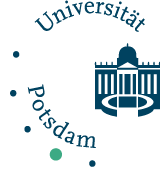Organizations and coordination in times of wicked problems
From 21 to 23 Mai 2014 WIPCAD and the University of Bergen held a joint PhD-workshop in Norway.
How do organizations jointly tackle complexity when facing wicked policy problems like climate change, cross‐border welfare and tax policies or internal security and safety? Under the heading of coordination, a core focus and somewhat 'magic term' of public administration and organization theory, some of the most distinguished European public administration scholars discussed this question, the still fuzzy concepts and its application in current organization research with 14 selected PhD students in an intense three‐day workshop. The workshop was organized by WIPCAD member Prof. Werner Jann in conjunction with the local host and long‐time research collaborator Prof. Per Lægreid. Our fellows Anne Lange, Kai Harbrich, Michaela Böhme, Ina Radtke and Robert Gäde hereby presented parts of their dissertation projects, while WIPCAD post‐doc Thurid Hustedt served as a discussant.
Coordination and other modes of establishing coherence within and among organizations, are ‘hot topics’ in public administration and organization theory. Attempts to coordinate governmental policy‐making and implementation across organizational boundaries, sectors and levels are certainly not new. However, they have regained attention in the context of new 'wicked problems' and ever stronger multi‐level governance arrangements in recent years. Both research trends emphasize transboundary challenges that cut across traditional, historically evolved, responsibilities.
In this context, coordination can be seen as both means and outcome (e.g. How do organizations’ structure, institutionalization, task and locus affect actual coordination behavior and outcome?) and the question of organizational and institutional change becomes crucial inregard to coordination structure and practices.
Starting the PhD workshop with Aaron Wildavsky (together with Pressman 1984, 133), ‘No phrase expresses as frequent a complaint about the federal bureaucracy as does ‚lack of coordination‘. No suggestion for reform is more common than ‚what we need is more coordination‘, Werner Jann condensed and discussed the classics of coordination literature. Subsequently, Martin Lodge (LSE) drew lessons from planning failures and disaster mitigation for coordination research. Consequently, Christopher Pollitt (KU Leuven) gave a more empirical sketch about the development towards more ‘horizontality’ in European central governments as well as the reform trend of a so‐called ‘whole‐up‐government’. Like each of the well‐organized workshop days in Western Norway, the professorial input in the morning was followed by a conference panel format with paper presentations by PhD fellows. The whole evening program including the dinner at the harbor: was a total coordination success: everybody was there, a clear allocation of tasks and resources were established and all participants shared a common goal.
Day 2 began with Morton Egeberg (Oslo), who accentuated the importance of coordination in the multi‐level setting of the European Union by analyzing the indirect implementation of EU directives at the domestic level. Moreover, Per Lægreid spoke about the challenge of coordination in reaction to the process of fragmentation through NPM reforms presenting empirical findings of a survey among public officials. The input on the third day focused more specifically on situations of crisis and catastrophes where the temporal imperative of coordinative management is more pronounced. While Arjen Boins’ (Utrecht) attempt was to understand crisis coordination more generally, Lise H. Rykkja (Bergen) presented current research on the coordination efforts in the case of the 22th of July 2011 terror attacks in Utøya and Oslo.
All in all, the PhD projects showed a variety of perspectives and dimensions regarding coordination: Structural vs. procedural, formal vs. informal, negative vs. positive, vertical vs. horizontal. The detailed reflection on the mechanisms achieving coordination (hierarchy, market and networks) and modes of ‘working together’ (information sharing, joint agencies and working groups, core executive arrangements) makes the workshop a valuable contribution for the participating scholars.
Report by Robert Gäde

